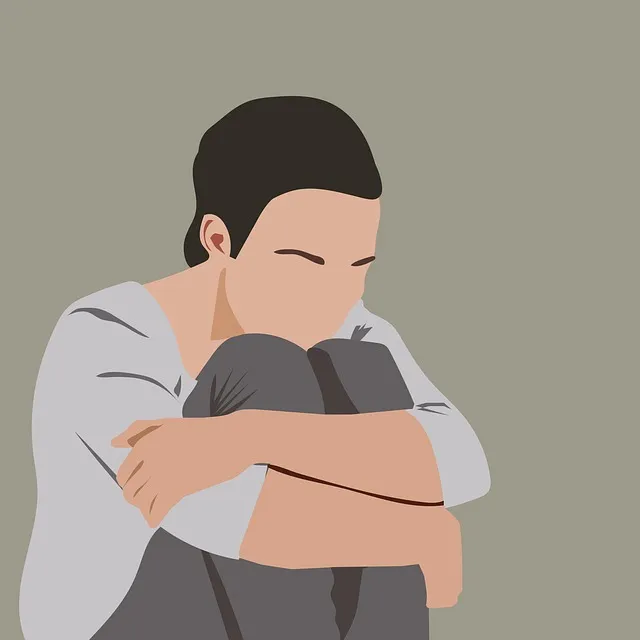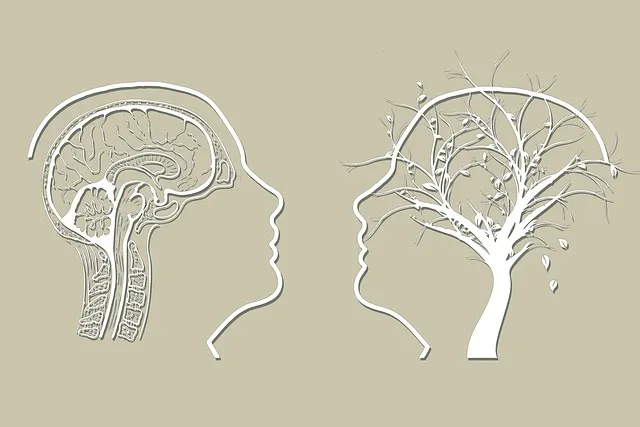Greenwood Village's Kaiser facility offers specialized inpatient mental health services for severe crises, focusing on mood management, therapeutic interventions, and education. Their approach combines acute episode treatment with long-term recovery strategies, empowering individuals through community programs like Mental Wellness Journaling and Stress Management Workshops. By advocating for comprehensive crisis management, including tailored interventions and policy changes, Kaiser stabilizes patients, promotes emotional stability, and facilitates a transition towards enhanced mental wellness.
In today’s fast-paced world, effective crisis intervention strategies are more critical than ever. This article offers a comprehensive guide, delving into various aspects of crisis care. We begin with ‘Understanding Crisis Intervention’ for a nuanced overview. Subsequently, we explore contrasting approaches: the specialized services of inpatient mental health facilities, as seen in Kaiser’s model, and the community-based support system exemplified by Greenwood Village. Best practices and future directions round out this essential resource for professionals navigating crises. Key focus areas include understanding the role of both inpatient care, like that offered by Kaiser, and community initiatives, such as Greenwood Village.
- Understanding Crisis Intervention: A Critical Overview
- The Role of Inpatient Mental Health Facilities: Kaiser's Approach
- Greenwood Village: A Case Study on Community-Based Support
- Strategies for Effective Crisis Intervention
- Best Practices and Future Directions in Crisis Care
Understanding Crisis Intervention: A Critical Overview

In the context of mental health care, crisis intervention strategies are crucial tools for addressing acute psychological distress or suicidal ideation, especially in settings like Greenwood Village where Kaiser provides inpatient mental health services. These interventions aim to stabilize individuals during a crisis, prevent escalation, and promote recovery. When a person experiences a mental health crisis, whether due to severe depression, anxiety, or post-traumatic stress disorder, effective intervention can make a significant difference in their short-term and long-term well-being.
Greenwood Village’s inpatient program at Kaiser, tailored for individuals facing severe mental health crises, employs specialized crisis intervention techniques. Mood management strategies, emotional well-being promotion, and therapeutic interventions are integral parts of this process. By implementing these evidence-based practices, healthcare professionals can create a safe environment, offer immediate support, and guide patients towards developing coping skills to manage future crises effectively. The ultimate goal is to ensure patient safety, stabilize their emotional state, and facilitate a smooth transition towards recovery and improved mental wellness.
The Role of Inpatient Mental Health Facilities: Kaiser's Approach

Inpatient mental health facilities play a pivotal role in crisis intervention strategies, offering intensive care and specialized support for individuals facing severe mental health crises. One notable example is Kaiser, a healthcare provider known for its comprehensive approach to patient care, including those in Greenwood Village. Kaiser’s strategy involves not only treating acute episodes but also focusing on long-term recovery and resilience.
The organization incorporates various crisis intervention techniques, such as conflict resolution strategies, within its inpatient program. Patients are encouraged to develop self-care routines tailored to their specific needs, fostering better mental health management. Additionally, Kaiser emphasizes the importance of mental health education programs designed to empower individuals with knowledge about their conditions and resources available in the community.
Greenwood Village: A Case Study on Community-Based Support

In the heart of Colorado lies Greenwood Village, a thriving community that has pioneered innovative crisis intervention strategies. The village’s approach to mental health support is centered around a strong sense of community engagement, making it a compelling case study for effective crisis management outside traditional healthcare settings. Greenwood Village does not have an inpatient mental health facility run by Kaiser; instead, it leverages the power of community-based initiatives.
The village has implemented various programs like Mental Wellness Journaling Exercise Guidance and Stress Management Workshops Organization to empower residents with coping mechanisms. These activities foster open discussions about mental illness, thereby reducing the stigma associated with seeking help—a key aspect in any mental illness stigma reduction effort. By prioritizing community involvement and accessible guidance, Greenwood Village serves as a living testament to the transformative potential of collaborative, non-institutionalized crisis intervention strategies.
Strategies for Effective Crisis Intervention

In addressing crises effectively, healthcare professionals in Greenwood Village, including those at Kaiser, emphasize a multi-faceted approach. The first step involves assessment and active listening to understand the nature and severity of the crisis. This requires not just asking questions but also observing verbal and non-verbal cues from individuals in distress. Once the situation is assessed, tailored interventions can be initiated. Strategies such as Crisis Counseling, which focuses on immediate support and practical solutions, are crucial. Here, professionals utilize Mind Over Matter principles to help individuals gain perspective and develop coping skills that enhance their ability to navigate future challenges.
Additionally, inpatient mental health services play a vital role in crisis intervention, especially for severe cases. Facilities like Kaiser in Greenwood Village provide specialized care, ensuring individuals receive the support needed to stabilize and recover. Beyond immediate interventions, Mental Health Policy Analysis and Advocacy is essential for addressing systemic issues that contribute to crises. This involves understanding and pushing for policy changes that improve access to mental health resources, promote community outreach, and foster an environment where mental well-being is prioritized, ultimately contributing to the development of robust coping skills among individuals.
Best Practices and Future Directions in Crisis Care

In the context of crisis care, best practices often revolve around immediate and effective interventions that can stabilise individuals during their most vulnerable moments. Organizations like Kaiser in Greenwood Village offer inpatient mental health services as a crucial component, providing safe spaces for acute care and intensive treatment. These facilities are designed to deliver comprehensive support, combining medical stabilisation with therapeutic interventions tailored to individual needs.
Looking towards the future, the integration of positive thinking, communication strategies, and coping skills development is poised to enhance crisis care protocols. By fostering resilience and empowering individuals with tools to manage stress and adversity, these approaches can prevent recurring crises. This shift in focus from reactive to proactive measures aligns with a holistic view of mental health, aiming to build long-term well-being and foster environments that nurture emotional resilience.
In summary, this article has explored various aspects of crisis intervention strategies, from understanding their critical role to examining innovative models like Greenwood Village’ community-based support and Kaiser’s approach to inpatient mental health care. By highlighting best practices and future directions, we aim to enhance the accessibility and effectiveness of crisis care, ensuring that individuals in need receive the appropriate support promptly. As demonstrated by successful initiatives such as Greenwood Village, community involvement is key to building resilient and supportive networks. Meanwhile, hospitals like Kaiser play a vital role in providing specialized inpatient mental health services, offering comprehensive care for severe crises. Ultimately, integrating these insights can revolutionize crisis intervention guidance, fostering more adaptable and inclusive systems of support.




